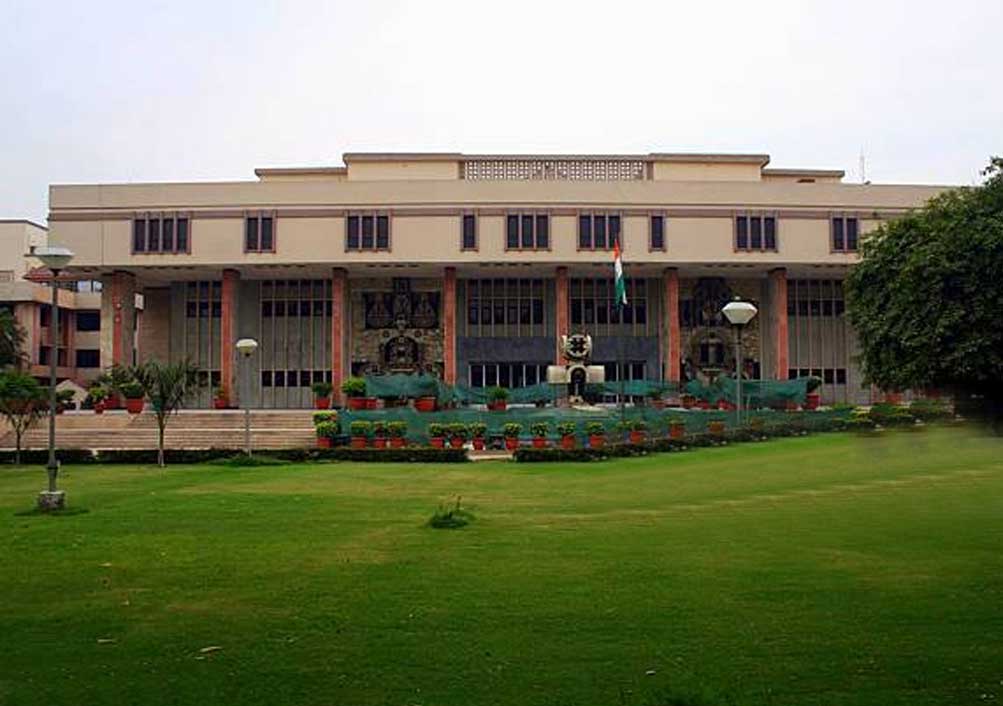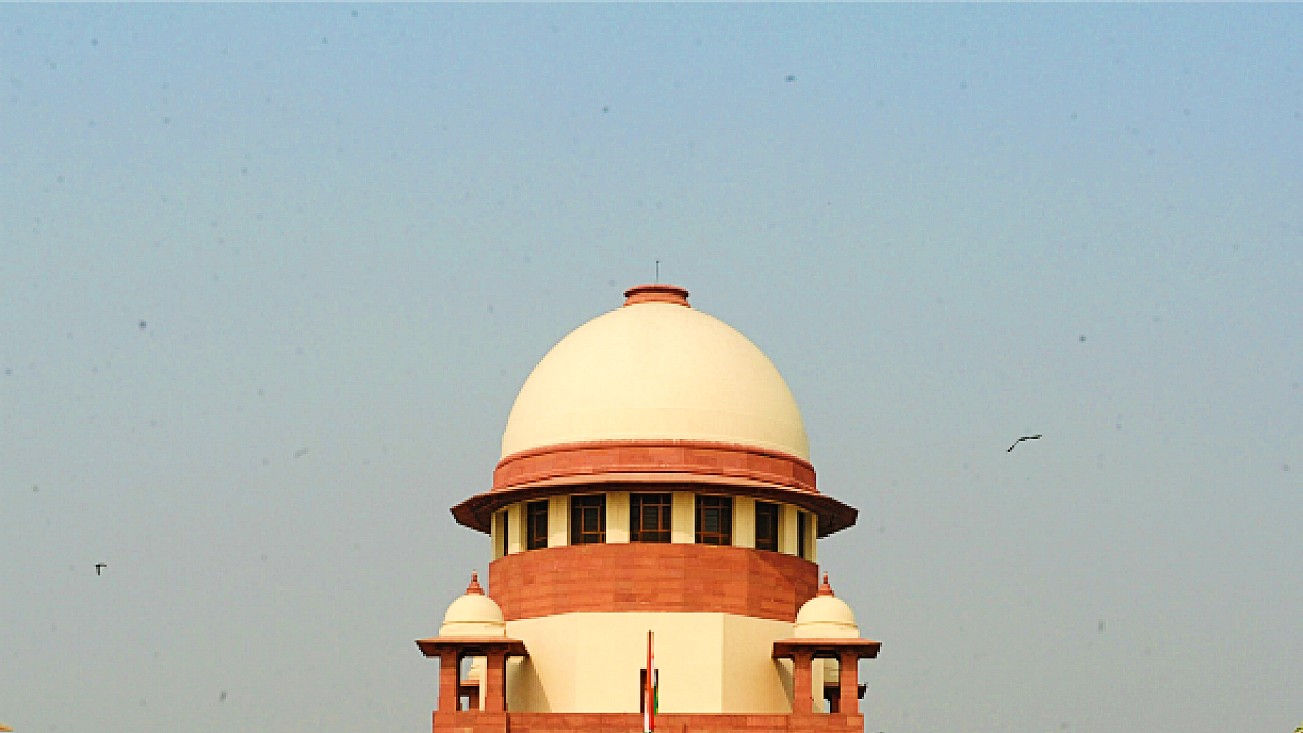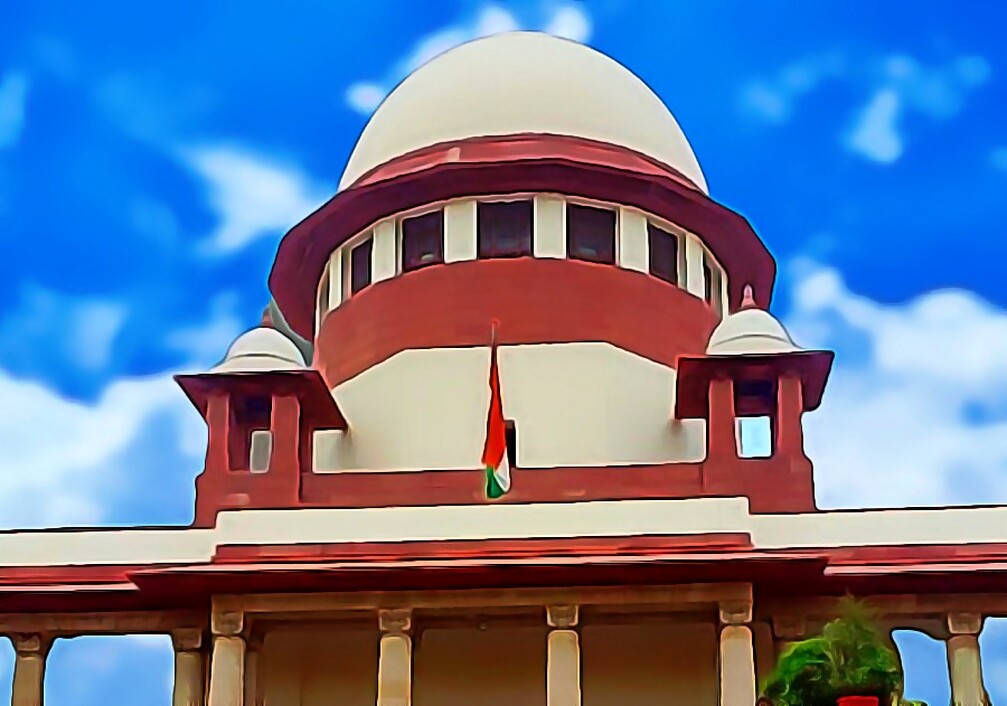Presumption of guilt u/s 29 & 30 of POCSO Act can't be an edifice to convict accused when victim's testimony is unreliable and serious flaws exist in prosecution's case: Delhi HC
Justice Anoop Kumar Mendiratta [15-04-2024]

Read Order: VEERPAL @ TITU v. STATE [DEL HC- CRL.A.223/2023]
Tulip Kanth
New Delhi, April 16, 2024: While observing that a child abuser in the eventuality of false implication continues to suffer a blot of social stigma, the Delhi High Court has acquitted a POCSO convict. The High Court was of the view that the testimony of the victim did not inspire confidence and the case was based upon fabrication due to animosity and matrimonial disputes.
The Single-Judge Bench of Justice Anoop Kumar Mendiratta was considering an appeal preferred by the appellant/convict under Section 374(2) of Code of Criminal Procedure, 1973 (Cr.P.C.) challenging the order on sentence of the Additional Sessions Judge, Special Court POCSO. He had been sentenced for offence punishable under POCSO Act to RI for 5 years and for offence punishable u/s 506 of IPC to RI for 5 years.
The incident is of the year 2016, when a written complaint was given by the victim/prosecutrix ‘R’ (name withheld) aged about 12 years alleging that the Appellant Veerpal @ Titu who is brother of her aunt(M), used to visit their house and teach her wrong things. One day when her aunt (M) went to the bathroom, the appellant started kissing her and pressed her chest. She somehow released herself from his clutches and ran away. In the evening at the time of going to his house, appellant threatened to kill her in case she made any complaint against him. She remained upset for many days and disclosed the incident on asking by her grandmother. FIR was accordingly registered under Section 354/509/506 IPC and Section 8/10 of Protection of Children from Sexual Offences Act.
Thereafter, charge was framed against the appellant for offences punishable under Section 506 IPC and Section 6/10 POCSO Act, 2012. Appellant pleaded not guilty to the same and claimed trial. In the statement recorded under Section 313 Cr.P.C., the appellant denied the prosecution version and claimed that he had been falsely implicated. Also, DW1 Shri Om Dutt and DW2 Sukhbeer were examined in defence, who had accompanied the appellant on the alleged date of incident i.e. 10.09.2016 in order to resolve the matrimonial differences between ‘M’ (aunt of victim/sister of appellant) and her husband ‘O’. They also deposed with reference to quarrel which had taken place at the premises of victim and further stated that ‘M’ along with her child had proceeded to her parental home with them.
One of the arguments raised by the appellants was that he had been falsely implicated by using the child victim on account of animosity between the family of victim and the appellant on account of matrimonial differences between his sister ‘M’ and her husband ‘O’. It was vehemently pointed out that there had been a delay of five days in lodging the FIR and the word ‘badtamizi’ used by the prosecutrix had been given different connotations from time to time.
The State Counsel submitted that the victim felt suffocated and nervous and, as such, did not inform the incident for five days after 10.09.2016. The contradictions pointed out on behalf of the appellant were stated to be immaterial to discredit the testimony of witnesses.
According to the Bench, the findings of the Trial Court that victim R was aged about 11 years and 10 months on the basis of school records, required no interference.
The Bench also stated, “The principle is well settled that the Court can base conviction on the testimony of a child victim, if the same is credible and truthful. Corroboration is not a must on record but is a rule of prudence. The precaution which the Court should bear in mind while relying upon the testimony of a child victim is that the witness must be reliable, consistent and there is no likelihood of being tutored or under an influence. The version put forth has to be unassailable, trustworthy and of sterling quality, capable of holding appellant guilty on the basis of solitary evidence.”
The High Court opined that the chain of events reflected that testimony of the witness/victim was unreliable as she had been changing the stands, possibly due to tutoring or influence and throwing doubt if the incident had happened, as alleged. The edifice of prosecution version was weak and full of gaps. “A complete stoic silence on the incident for a period of five days creates a deep shadow of doubt on the prosecution case. It may also be noticed that the victim has been changing her version regarding the acts committed by the appellant at her discretion”, it added.
It was further noted by the Bench that the entire incident was alleged to have happened only within a short period of time while ‘M’ (aunt of the victim) had gone to bathroom and wascfollowed by an altercation due to matrimonial disputes on which the police was called but the incident was not revealed. In the light of contradictions brought on record, the testimony of the victim as well as her grandmother (PW3) did not inspire confidence and it couldn't be ruled out that the case was based upon tutoring or fabrication due to animosity and matrimonial disputes. The victim also refused for internal medical examination for no plausible reasons.
Section 29 of POCSO Act provides that the Court shall presume that the accused has committed the offence for which he is charged with, until contrary is proved. However, the presumption would operate only when the prosecution proves the foundational facts in the context of allegation against the accused beyond reasonable doubt. After the prosecution establishes the foundational facts, the presumption raised against the accused can be rebutted by discrediting the prosecution witnesses through cross-examination and demonstrating the gaps in prosecution version or improbability of the incident or lead defence evidence in order to rebut the presumption by way of preponderance of probability, it Clarified.
The Bench further observed that in absence of foundational fact not being proved beyond reasonable doubt, the reliance placed upon presumption under Section 29 & 30 of POCSO Act by thre Trial Court to base conviction, appeared to be misplaced.
“The presumption of guilt under Section 29 & 30 of POCSO Act taken by the learned Trial Court could not be an edifice to convict the appellant since testimony of victim is unreliable and there are serious flaws and gaps in the prosecution case. As a wrongful acquittal shakes the confidence of people, a wrongful conviction is far worse. A child abuser in the eventuality of false implication even continues to suffer a blot of social stigma. Prosecution case is marred by inadequacies and contradictions which strike to the root of prosecution case and, as such, prosecution has failed to bring home the charge against the accused beyond reasonable doubt”, the Bench asserted.
Thus, allowing the appeal, the Bench acquitted the appellant and ordered him to be released forthwith.
Sign up for our weekly newsletter to stay up to date on our product, events featured blog, special offer and all of the exciting things that take place here at Legitquest.




Add a Comment